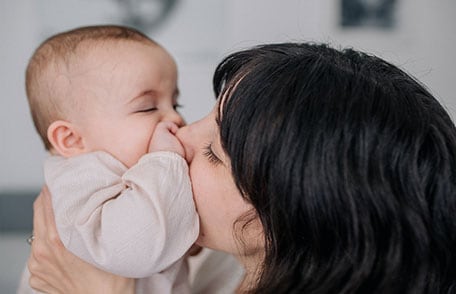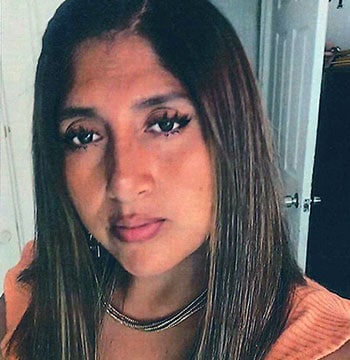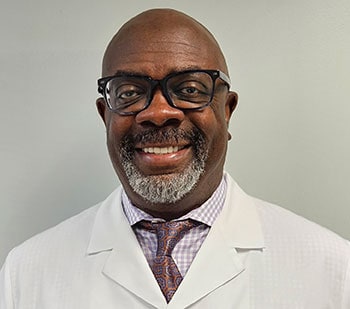Keeping Babies Safe from Lead and Mercury

Learn more about a New Jersey project supported by funding from CDC to protect babies from lead and mercury exposure.
Maria Lala Bonilla thought she was doing everything right for her second pregnancy. A devoted mom, she worked as a kitchen assistant in a restaurant to make ends meet after immigrating to the United States from Ecuador.
However, after giving birth to her younger daughter three years ago, Bonilla was shocked to learn that both she and her baby had high levels of lead in their blood. Lead poisoning is dangerous, especially before birth. If people are exposed to lead or mercury while pregnant, their developing babies can also be exposed, possibly causing health and learning problems.

Maria Lala Bonilla
(Photo courtesy of Maria Lala Bonilla)
Thanks to a free prenatal screening project by the New Jersey Department of Health, Bonilla caught the problem, learned how to reduce toxic chemicals at home, and improved her baby’s chances for better health.
To begin with, she answered questions about her home which revealed that one source of contamination was ceramic dishes containing lead. So she replaced the dishes with new ones. Also, her doctors at University Hospital in Newark, where she was screened, thought old paint in her home’s walls may have been another source of lead, so it was removed.
Health Problem Might Have Been Prevented
“My little girl, Shirley Beatriz, was born with conditions like heart disease and anemia,” said Bonilla, 31. “I was sad to know that her lead poisoning problem might have been prevented. The doctors said the level of lead in her blood has been decreasing, and that makes me happy. I am hopeful it will all be gone soon.”

Dr. Onajovwe Fofah
(Photo courtesy of Dr. Onajovwe Fofah)
Educating Families about Toxic Metals
The New Jersey Department of Health Biomonitoring Program, supported by funding from the Centers for Disease Control and Prevention, offers free prenatal screening for lead and mercury through hospitals working with immigrants, minorities, and others. Experts perform blood tests to check patients for lead and mercury, which may affect the health of moms and babies.
Bonilla and her baby were screened shortly after childbirth. This allowed detection much sooner than the usually recommended screening 9 to 12 months after birth, with the chance to improve outcomes, says Dr. Onajovwe Fofah, neonatal medicine specialist and chair of the Pediatrics Department at University Hospital in Newark, the primary teaching hospital for Rutgers New Jersey Medical School. Rutgers and the hospital are collaborating on the project with the New Jersey Department of Health.

Dr. Uchenna Nwobu
(Photo courtesy of Dr. Onajovwe Fofah)
Experts have screened more than 17,000 samples from mothers and babies since June 2019.
The project is successful because it goes beyond screening. Explains Fofah: “We thought we could educate moms about lead and mercury while they’re pregnant. Once we found higher levels than normal, we gave them a questionnaire to find out the source. That is essential to education.
“No mother wants to harm a baby. Once they understand through education, they tend to respond and you see the mercury and lead levels come down.”
The project leads, Dr. Fofah and Dr. Uchenna Nwobu, medical director of ambulatory care services in the hospital’s Department of Obstetrics, Gynecology, and Women’s Health, agree that New Jersey sets a good example of a strategic public health project. It starts with screening and education, then continues with home follow-up visits to help families “walk the walk” and put learning into practice.
Additional support for the project comes from the New Jersey Childhood Lead Program, Department of Health | Childhood Lead | Preventing Lead Poisoning (nj.gov)
-
- Childhood Lead Poisoning Prevention Program (cdc.gov)
- Spanish Communication Resources (cdc.gov)
- National Biomonitoring Program (cdc.gov)
- Lead Exposure & Pregnancy: How to Protect You & Your Baby (nj.gov) [PDF – 818 KB]
- Mercury Exposure & Pregnancy: How to Protect You & Your Baby (nj.gov) [PDF – 950 KB]